Now that we’re into the New Year – are you sticking with your New Year’s Resolutions? While eating healthy, hitting the gym, and losing those holiday pounds are often high on the resolution list – it’s important to remember the importance of saving water. Did you resolve to save more water this year?
If you’re looking for helpful tips and ideas to save water, you’ve come to the right place. WaterSense, a voluntary partnership program sponsored by the U.S. Environmental Protection Agency (EPA) has created an excellent resource to help you stay on track.
January
- Take the “I’m for Water” pledge and commit to saving water throughout the year. If you’re just starting now, don’t worry! You can take the pledge any time.
- Learn about how you can reduce water usage by first getting to know your water bill. Are you currently using too much?
February
- Look into purchasing WaterSense labeled fixtures for your bathroom and kitchen.
- Turn off the water when brushing your teeth and try reducing your shower time to save even more water.
March
- Celebrate ‘Fix a Leak Week’ by checking pipes throughout the inside and outside of your house for leaks. Make sure no water is dripping in shower or drain pipes – if it is – be sure to remedy with pipe tape.
- Check your water meter before and after a two-hour period when no water is used. Did it change?
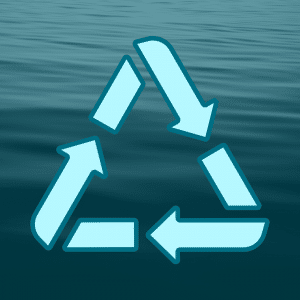
April
- Celebrate Earth Day! Lay mulch around your flowers and plants to prevent evaporation after watering.
- Only water your lawn when needed.
May
- April showers bring May flowers! If you’re concerned about keeping your grass and landscaping lush, be sure to check your watering system to ensure no water is being wasted.
- Do you have an irrigation system? Look for an irrigation professional certified by a WaterSense labeled program to help maximize efficiency.
June
- Look for rebates should you choose to install WaterSense labeled solutions in your home.
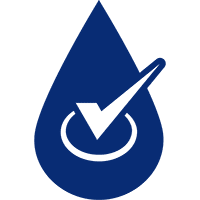
July
- With high summer temperatures, avoid watering your lawn and plants in the middle of the day. This will reduce quick evaporation of water.
August
- Happy World Water Week! Celebrate by committing to wash your clothes only if you have a full load.
September
- Calculate how much you can save by using WaterSense labeled products in your home.
- Thinking about adding new landscaping to your yard this fall? Research native plants that don’t require a lot of water to survive.
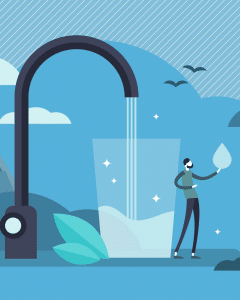
October
- During Energy Action Month, swap out any inefficient showerheads with ones that release fewer gallons of water per minute.
November
- Check your toilet for leaks.
- Consider getting a new WaterSense labeled toilet to reduce water usage by up to 60 percent.
December
- Be sure to scrape leftover food from your plate into the trash to avoid wasting water rinsing dishes off.
- Get an early start on your resolutions and take the I’m For Water pledge again!
Are you up for the challenge this year? Making small changes each month can truly make a difference. Help save water this year and every year by committing to using and wasting less today!

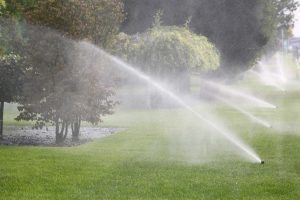 The summer months often go hand in hand with increased water demand and decreased supply. An influx of tourists combined with summer drought and increased outdoor water usage often leaves water systems feeling the pinch. Traditionally, water conservation has been limited to water use restrictions. However, increasing water efficiency is another way to address limited water supplies, with the added boon of providing economic and environmental benefit.
The summer months often go hand in hand with increased water demand and decreased supply. An influx of tourists combined with summer drought and increased outdoor water usage often leaves water systems feeling the pinch. Traditionally, water conservation has been limited to water use restrictions. However, increasing water efficiency is another way to address limited water supplies, with the added boon of providing economic and environmental benefit.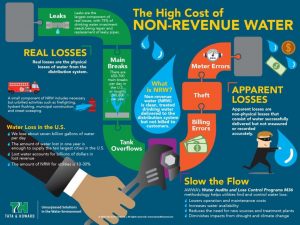
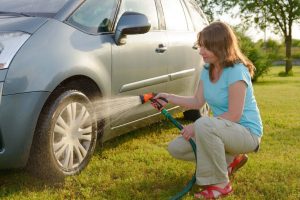
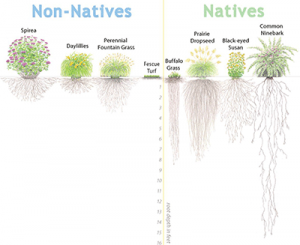
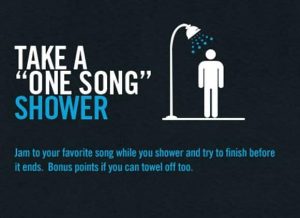 Install water efficient toilets that use only 1.6 gallons per flush, and regularly check toilets for leaks. Leaky toilets are most often fixable by simply installing a new flapper. Try taking shorter showers and install water efficient showerheads. Only run the laundry or dishwasher when completely full, and consider replacing older models with newer, more water efficient ones. Repair leaking faucets and install water efficient faucet aerators to reduce water usage, and wash fruits and vegetables in a pan of water rather than running the faucet. Bonus: use the spent wash water to water house plants.
Install water efficient toilets that use only 1.6 gallons per flush, and regularly check toilets for leaks. Leaky toilets are most often fixable by simply installing a new flapper. Try taking shorter showers and install water efficient showerheads. Only run the laundry or dishwasher when completely full, and consider replacing older models with newer, more water efficient ones. Repair leaking faucets and install water efficient faucet aerators to reduce water usage, and wash fruits and vegetables in a pan of water rather than running the faucet. Bonus: use the spent wash water to water house plants.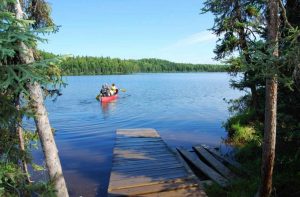 Summertime is a time for family and fun, and water restrictions shouldn’t put a damper on summer activities. Conscientious residential water usage combined with consistent, well-implemented municipal water audits results in a more cost-effective and environmentally friendly water system. Water conservation and efficiency benefits both consumers and municipalities, and provides a more sustainable water system for future generations.
Summertime is a time for family and fun, and water restrictions shouldn’t put a damper on summer activities. Conscientious residential water usage combined with consistent, well-implemented municipal water audits results in a more cost-effective and environmentally friendly water system. Water conservation and efficiency benefits both consumers and municipalities, and provides a more sustainable water system for future generations.